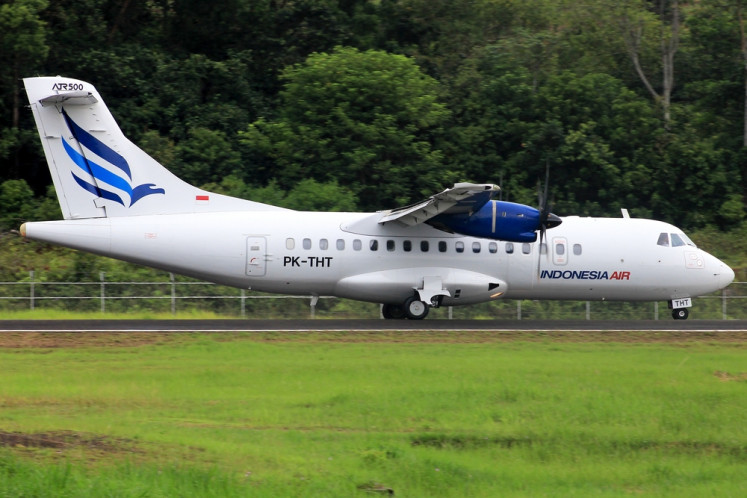Popular Reads
Top Results
Can't find what you're looking for?
View all search resultsPopular Reads
Top Results
Can't find what you're looking for?
View all search resultsVintage Vespas rebirthed in Bali
Vespa, the legendary scooter model produced by Italian firm Piaggio, is developing a cult following in Bali as specialized shops in Kuta and Denpasar begin offering customized and restored versions of the vintage two-wheeler
Change text size
Gift Premium Articles
to Anyone
V
espa, the legendary scooter model produced by Italian firm Piaggio, is developing a cult following in Bali as specialized shops in Kuta and Denpasar begin offering customized and restored versions of the vintage two-wheeler.
The streets of Imam Bonjol and Raya Kuta are the best places to hunt for an original Vespa or a restored model, almost all in mint condition. Scores of workshops along these roads display the classic scooters, with engines ranging from 125 cc to 150 cc in power.
The workshops offer body and engine work as well as "raw materials" - from old and battered Vespas - for customers who want to design a customized scooter from scratch.
One of the workshops, "Piaggio 62", claims to be "the spot for classic and original Vespas".
The workshop displays 30 scooters, with some ready to roll and others simply lying around for parts.
Workshop owner Ibrahim said the vintage scooters carried a higher price tag than brand-new Japanese motorbikes, because the Italian scooters have historical value.
"Here we really appreciate the originality and quality of our products. So, prices range from Rp 12 million *US$1,200* to Rp 17 million for a ready-to-use classic Vespa, which is quite reasonable."
However, if an enthusiast was after a top vehicle with restored parts and a coat of original body paint, the price could soar beyond Rp 20 million.
"It really depends on the detail demanded by the customer, particularly foreigners," he said.
The 43-year old workshop owner said Vespa collectors and hobbyists were his more regular customers.
"Usually, local customers come to purchase scooters for their collections, while foreigners buy them for summer-trips back in their homelands."
Since opening the workshop in 2001, Ibrahim said the Vespa business had been quite profitable.
Ibrahim said November to January was the peak season for business when his eight employees were busy constructing custom made scooters, usually around four per month.
"Most of the orders during this time comes from foreigners. They want the scooters to be shipped by March at the latest so they could be used for the summer holiday.
"Usually, we do two scooters per month. But, you can't reject such orders, right?"
The workshop has regular customers from the Netherlands, Belgium and Italy, the birthplace of the Vespa.
Ibrahim said finding raw materials and spare-parts for the modification process was quite easy.
"We can buy old, damaged and rusty scooters in Bandung, Central Java and Jakarta. As for spare-parts, we can find them anywhere, including Bali.
"Malaysia and the Philippines also have similar businesses and they do great work. I think we have to enhance our service to maintain competitiveness."
The increasing popularity of Vespas has apparently not just brought an increase in profit for the workshops but also annoyances.
A worker at a Vespa workshop in Kuta said growing attention from TV stations and newspapers about the business had resulted in bureaucratic interference.










